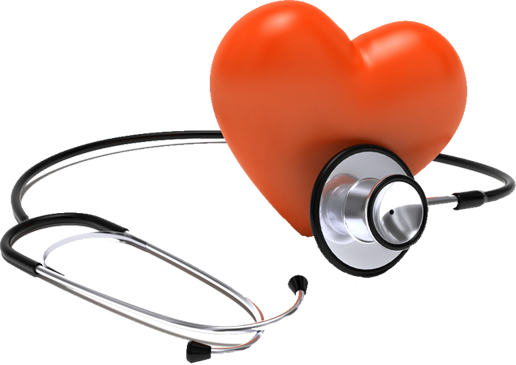Hypertension
Hypertension is “Silent Killer”.
Hypertension (high blood pressure) is when the pressure in your blood vessels is too high (140/90 mmHg or higher). It is common but can be serious if not treated.
People with high blood pressure may not feel symptoms. The only way to know is to get your blood pressure checked.
Things that increase the risk of having high blood pressure include:
• older age
• genetics
• being overweight or obese
• not being physically active
• high-salt diet
• drinking too much alcohol
Lifestyle changes like eating a healthier diet, quitting tobacco and being more active can help lower blood pressure. Some people may still need to take medicines.
Blood pressure is written as two numbers. The first (systolic) number represents the pressure in blood vessels when the heart contracts or beats. The second (diastolic) number represents the pressure in the vessels when the heart rests between beats.Hypertension is diagnosed if, when it is measured on two different days, the systolic blood pressure readings on both days is ≥140 mmHg and/or the diastolic blood pressure readings on both days is ≥90 mmHg.
Risk factors
Modifiable risk factors include unhealthy diets (excessive salt consumption, a diet high in saturated fat and trans fats, low intake of fruits and vegetables), physical inactivity, consumption of tobacco and alcohol, and being overweight or obese.Non-modifiable risk factors include a family history of hypertension, age over 65 years and co-existing diseases such as diabetes or kidney disease.
Symptoms
Most people with hypertension don’t feel any symptoms. Very high blood pressures can cause headaches, blurred vision, chest pain and other symptoms.
Checking your blood pressure is the best way to know if you have high blood pressure. If hypertension isn’t treated, it can cause other health conditions like kidney disease, heart disease and stroke.
People with very high blood pressure (usually 180/120 or higher) can experience symptoms including:
• severe headaches
• chest pain
• dizziness
• difficulty breathing
• nausea
• vomiting
• blurred vision or other vision changes
• anxiety
• confusion
• buzzing in the ears
• nosebleeds
• abnormal heart rhythm
If you are experiencing any of these symptoms and a high blood pressure, seek care immediately. #DrNitishSays #DrNitish
Need an appointment?
APPOINTMENT NOW
